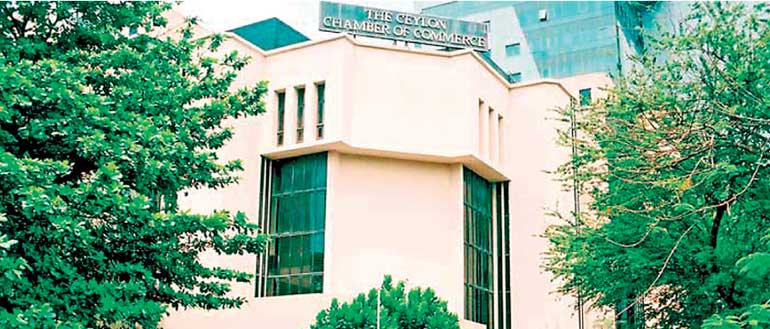Sunday Feb 22, 2026
Sunday Feb 22, 2026
Tuesday, 10 May 2016 00:33 - - {{hitsCtrl.values.hits}}
Consistency in policy should be a top priority of the Government in order to build confidence and boost private sector investment, members of the Ceylon Chamber of Commerce said yesterday.
At its latest monthly meeting, members of the Committee observed that while there is greater interest among Government officials to listen to, and address, private sector concerns, this is yet to translate into a stable economic policy environment, where policy changes are carefully considered alongside their impacts on business activity.
 Ceylon Chamber of Commerce
Ceylon Chamber of Commerce
The Committee, comprising of corporate leaders across every major industry sector in the country, provides an incisive perspective of the country’s business context and the sentiments of the private sector. Overwhelmingly, the group asserted that the most critical concern right now is tax policy uncertainty and ad hoc policy changes, the Ceylon Chamber of Commerce said in a statement.
“With several shifts within the span of a few months, the lack of clarity and the uncertainty surrounding tax changes are hurting the business climate. The group also emphasised that conflicting messages from different agencies and individuals on the same issue is harmful for business confidence, and urged coherence and consistency across all agencies relevant to an issue.”
Evidence from business climate assessments around the world suggests that irregular and unpredictable tax and other policy regimes substantially hurt businesses’ ability to plan ahead and take longer-term investment decisions, resulting in negative impacts on the overall economy. Leaders in several sectors also observed that delays in decision-making regarding regulatory and administrative matters are affecting businesses, and addressing this can spur dynamism in economic activity.
In a survey done by the CCC with Lanka Business Online earlier this year (‘LBR LBO CCC Business Leaders Survey – Outlook 2016’) some of the most cited issues that corporate leaders were ‘somewhat concerned’ or ‘extremely concerned’ about were uncertainty in overall economic policy (90%); tax policy changes (88%); and domestic political stability (84%). The survey captured sentiments of 164 of the country’s key corporate leaders.
“Amidst a volatile environment abroad and a difficult macroeconomic situation at home, it is important to have consistent and predictable policies enabling the private sector to thrive. As Sri Lanka moves through middle-income, it is these characteristics that will determine higher, and better quality, foreign direct investment in to the country, rather than instruments like tax holidays,” the statement added.
In order to raise Sri Lanka’s investor attractiveness, spur new business activity, leverage on international goodwill, and position the country as a strong contender in the region, all of which are national objectives that the private sector fully supports, it is essential to have consistency of policies, and robust public-private dialogue processes to avoid ad hoc policy changes that have negative implications for the economy.